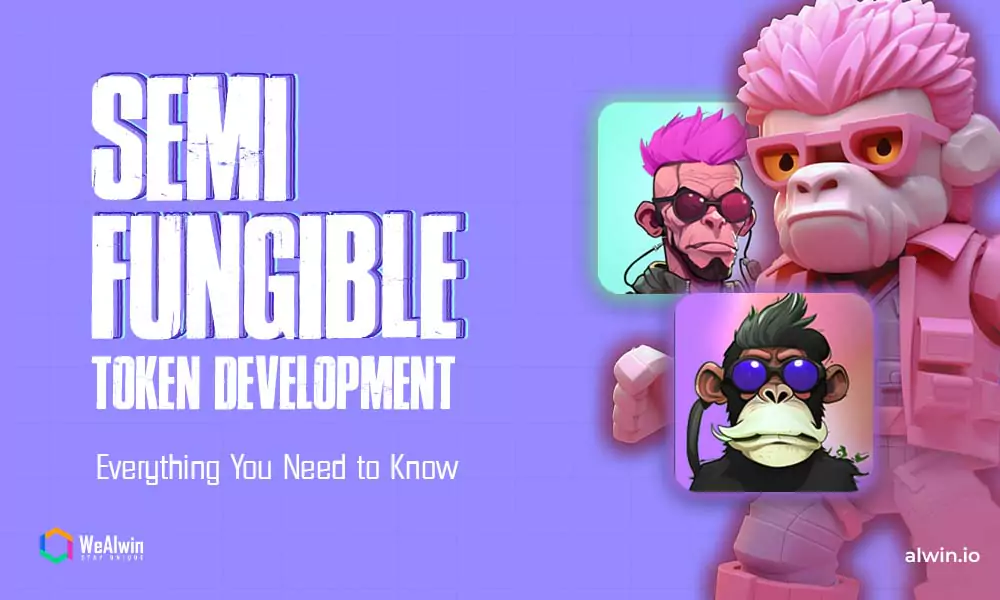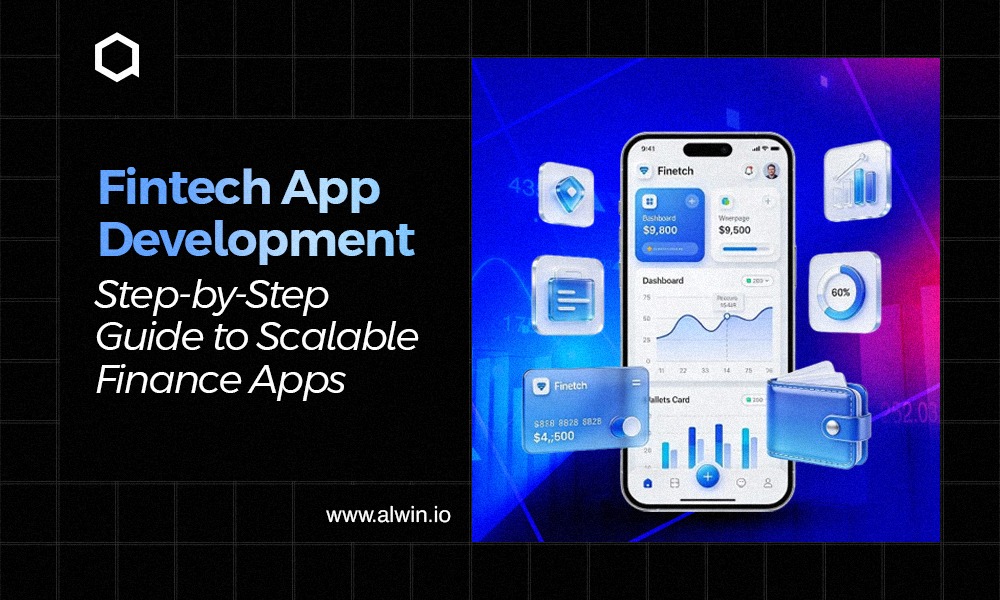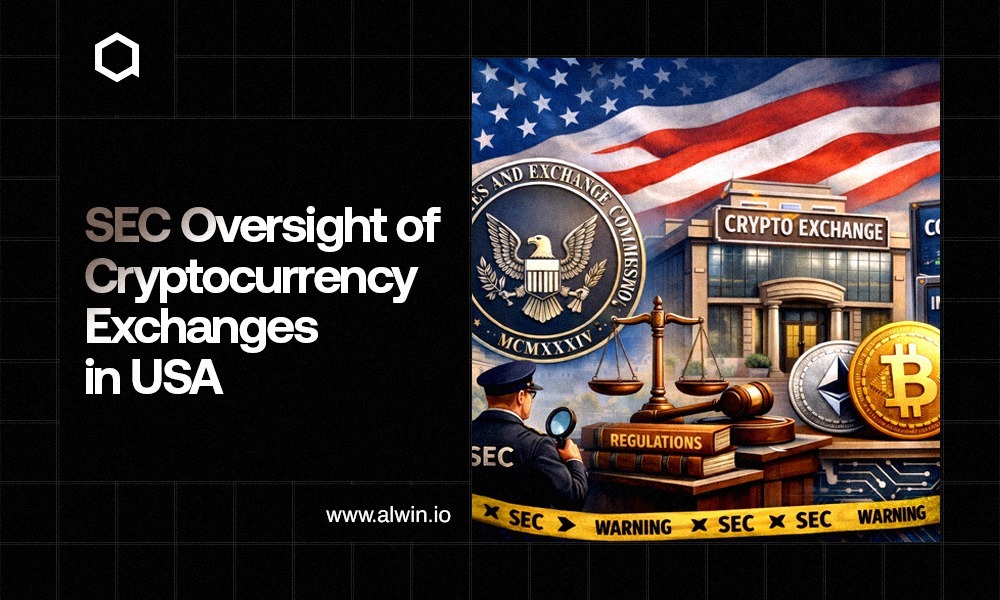Semi-fungible tokens (SFTs) are emerging as a versatile and valuable asset class in the blockchain ecosystem.
Combining features of both fungible and non-fungible tokens, SFTs offer unique opportunities for investors, entrepreneurs, and crypto enthusiasts.
Their ability to offer flexibility and utility in asset representation positions them as valuable instruments in the current market, paving the way for innovative use cases and investment opportunities.
Utilizing the ERC-1155 standard, SFTs enable batch processing and cost-effective transactions, significantly reducing transaction costs by up to 90%.
They are particularly suited for use cases in gaming, event ticketing, and digital fashion, where items can initially be fungible and later become non-fungible.
This blog post provides a comprehensive guide on semi-fungible token development, including its significance, technical intricacies, and potential applications.
What is a Semi-Fungible Token (SFT)?
A semi-fungible token (SFT) is a type of digital asset that combines characteristics of both fungible and non-fungible tokens. This hybrid nature allows SFTs to initially function as fungible tokens, meaning they can be exchanged on a one-to-one basis with other tokens of the same type.
However, at a certain point, these tokens can transform into non-fungible tokens, each with unique properties and value.
- Fungible Tokens: These tokens are interchangeable with one another. Each token is identical in value and functionality to another token of the same type. Examples include cryptocurrencies like Bitcoin and Ethereum.
- Non-Fungible Tokens (NFTs): NFTs are unique digital assets that cannot be exchanged on a one-to-one basis. Each NFT has distinct characteristics and values, making them suitable for representing ownership of unique items such as art, collectibles, and real estate.
- Semi-Fungible Tokens (SFTs): SFTs start as fungible tokens, meaning they are interchangeable during a specific phase of their lifecycle. At a certain point, they can convert into non-fungible tokens, gaining unique properties that differentiate them from other tokens. This dual nature makes SFTs highly versatile and useful for various applications.
Why Are Semi-Fungible Tokens Important?
Semi-fungible tokens (SFTs) play a crucial role in the blockchain ecosystem by offering a versatile framework that enhances the functionality of digital assets.
They bridge the gap between fungible and non-fungible tokens, allowing developers and businesses to create more complex and adaptable applications.
This flexibility is vital as it enables the representation of a wide range of assets, from digital collectibles to in-game items, all while maintaining the benefits of blockchain technology such as transparency, security, and immutability.
SFTs contribute significantly to the evolution of blockchain applications by enabling innovative use cases that were previously difficult to implement.
Their unique characteristics allow for:
- Dynamic Asset Management
- Cost Efficiency
- Interoperability
Use Cases of Semi-Fungible Tokens
Gaming and Digital Collectibles
Semi-fungible tokens (SFTs) have become essential in the gaming industry, facilitating the creation and management of in-game assets and digital collectibles.
- In-Game Assets: SFTs allow developers to create items that can be traded, upgraded, or transformed.
For example, a player might start with a generic, fungible sword that can be traded among players. As the player progresses, the sword can be enhanced with unique attributes, turning it into a non-fungible token representing a personalized item. This dynamic increases player engagement and adds a layer of economic strategy to the game.
- Digital Collectibles: Beyond gaming, SFTs can represent digital collectibles such as trading cards or virtual pets. Initially, these collectibles can be fungible within a set or series. Once personalized or upgraded, they become unique items. This model encourages collectors to invest in and trade these assets, creating vibrant marketplaces.
Event Ticketing
SFTs offer innovative solutions for the event ticketing industry, addressing common challenges such as fraud and scalping.
Semi-Fungible Tokens for Event Tickets: Event organizers can issue tickets that are fungible until the event date. Multiple tickets can be sold as identical units. Once a ticket is scanned at the venue, it transforms into a non-fungible token, marking it as used and preventing resale. This approach enhances security, ensures legitimate ticket holders gain entry, and provides a clear record of attendance.
Finance and Investment
The financial sector stands to benefit significantly from the introduction of semi-fungible tokens, which can enhance traditional financial instruments and investment products.
Use in Financial Instruments and Investment Products: SFTs can represent fractional ownership of assets such as real estate or art. Initially, these investments are treated as fungible shares, allowing for easy trading among investors. Once a specific investment reaches a threshold or is sold, it can transform into a unique token signifying ownership of a specific portion of the asset. This flexibility democratizes access to investment opportunities and creates new liquidity in traditionally illiquid markets.
Other Applications
Beyond gaming, event ticketing, and finance, SFTs have the potential to revolutionize various other industries:
Supply Chain Management: SFTs can track batches of products through the supply chain, initially treated as fungible items. As products are processed, they can be assigned unique identifiers, enhancing traceability and accountability.
Digital Identity: SFTs can be utilized for digital identity verification, where a base identity token evolves into a unique token as users acquire different credentials or certifications. This approach enhances privacy and security while providing a flexible identity management system.
Loyalty Programs: Businesses can implement loyalty programs using SFTs, where points are initially fungible but can be converted into unique rewards or experiences based on customer engagement.
Benefits of Semi-Fungible Token Development
- Cost Efficiency: Reduces transaction costs through batch transfers and streamlined processes.
- Flexibility: Functions as fungible tokens initially, transitioning to non-fungible tokens when needed.
- Fractional Ownership: Allows users to buy/sell portions of a token, enhancing accessibility and liquidity.
- Enhanced Liquidity: Easily exchanged across platforms, maintaining value during transfers.
- Simplified Management: Represents multiple tokens under a single smart contract, reducing complexity.
- Wide Application in Gaming: Ideal for in-game currencies, items, and collectibles, enhancing user experience.
- Compatibility with Existing Standards: Built on established blockchain standards (e.g., ERC-1155), facilitating integration.
Schedule a Call with Our Experts to Get a Quote!Chat with us on WhatsApp
How to Develop a Semi-Fungible Token?
Developing a semi-fungible token (SFT) involves a systematic approach that combines technical development with strategic planning.
Here are the steps involved in developing a semi-fungible token.
- Project Structuring
- Choose a blockchain network
- Smart contract development
- Token design
- Website development
- Testing and deployment of token
Project Structuring
- Define Objectives: Outline the SFT’s goals and their application, such as in-game assets or event tickets.
- Market Research: Identify competitors, target audience, and unique selling points.
Choose a Blockchain Network
Select a Blockchain: Choose a blockchain supporting the ERC-1155 standard. Ethereum is popular, but Binance Smart Chain and Polygon are alternatives for lower costs and better scalability.
Smart Contract Development
- Design the Smart Contract: Create a contract that handles both fungible and non-fungible characteristics, including minting, transferring, and burning tokens.
- Programming Languages: Use Solidity for Ethereum or other compatible languages for your chosen blockchain.
Token Design
- Define Token Properties: Set parameters like total supply and metadata, and plan how tokens transition from fungible to non-fungible.
- User Experience: Develop user interfaces for managing and trading tokens.
Website Development
- Create a User-Friendly Interface: Build a website for users to learn about and interact with the SFT.
- Integration with Wallets: Ensure compatibility with popular wallets like MetaMask.
Testing and Deployment
- Conduct Thorough Testing: Perform unit, integration, and user acceptance testing using test networks like Ropsten or Rinkeby.
- Deploy the Smart Contract: Launch the contract on the mainnet and monitor for issues.
Post-Launch Support
- Ongoing Maintenance: Address bugs and provide support after launch.
- Community Engagement: Build and maintain a community to gather feedback and suggestions.
Technical Requirements
- Technical Expertise: Skills in smart contract development, particularly with ERC-1155 standards, and knowledge of tokenomics.
- Tools and Frameworks: Proficiency with tools like Truffle, Hardhat, or Remix for contract development, and blockchain explorers like Etherscan.
- Security Protocols: Use Git for version control, and implement security best practices.
Security Considerations
- Smart Contract Audits: Engage third-party firms for regular audits and consider a bug bounty program.
- Access Control: Implement role-based access and use multi-signature wallets for critical operations.
- Data Integrity: Store token metadata securely and immutably, and maintain regular backups.
- User Education: Educate users on secure wallet practices and keep them informed about updates and risks.
Future of Semi-Fungible Tokens
The future of semi-fungible tokens (SFTs) will be marked by groundbreaking advancements in interoperability, scalability, and feature sophistication.
As blockchain technology evolves, SFTs will seamlessly integrate across multiple networks, support dynamic and automated functionalities, and benefit from faster transactions with lower fees.
Their impact will be transformative across various industries: enhancing gaming with complex in-game economies, revolutionizing event ticketing with secure and flexible solutions, innovating financial instruments with fractional ownership options, improving supply chain traceability, and advancing digital identity management.
SFTs are poised to redefine asset management and user interaction in the digital economy.
Why Choose WeAlwin Technologies for Semi-Fungible Token Development?
WeAlwin Technologies, a leading token development company is committed to delivering guaranteed results, regardless of the complexity of your semi-fungible token (SFT) project. Our approach is rooted in transparency and reliability, ensuring that we practice what we preach and deliver on our promises.
Our 360° Holistic Approach Offers
- Client Association at Each Stage
- Center of Excellence and Research Team
- Dynamic Engagement Model
- Use of Latest Technologies
- Agile and Lean Project Execution Approach
Choose WeAlwin Technologies for your semi-fungible token development and experience unparalleled service, expertise, and commitment to your success.
Contact us today to get started!



